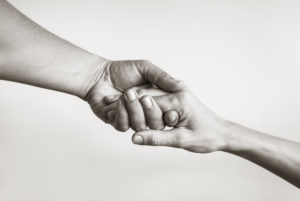“These responses are not totally surprising, but they’re deeply troubling,” said Gunny Scarfo, cofounder with Ben Zeidler of Nonfiction Research. “So we started to go a little deeper by asking what made emotional intimacy such a challenge for people. If it’s something we want so badly, why are we not opening up and getting it?” The somber conclusion is that many Americans are ashamed of who they really are:
• 64% of Americans regularly wonder if they’re “good enough” or “worthy” of being liked
• 16 is the average age at which Americans first remember hiding parts of themselves from others
• 58% worry that aspects of themselves might make it impossible for others to love them
 “If you think you’re not good enough, and that other people won’t think you’re good enough, then of course you’re going to develop behaviors that avoid intimacy, so the real you will never be seen and rejected,” said Dr. Leonard Citron, a licensed mental health psychotherapist, one of the six experts who shared their unique perspectives on the intimate lives of Americans with Nonfiction Research.
“If you think you’re not good enough, and that other people won’t think you’re good enough, then of course you’re going to develop behaviors that avoid intimacy, so the real you will never be seen and rejected,” said Dr. Leonard Citron, a licensed mental health psychotherapist, one of the six experts who shared their unique perspectives on the intimate lives of Americans with Nonfiction Research.
“We were dismayed to learn that 58% of Americans worried they were unlovable, and wanted to find out what they most fear someone could discover about them,” Gunny said. “ I was moved to tears by the personal, heartfelt and sad responses. Everyone worries at some point or another whether they’re really deserving of the level of love and intimacy they want. No one is immune to those feelings no matter how beautiful they are.”
“That I’m not good enough at life. I can never learn to be engaging, funny, charming, social, popular, etc. I feel like I’ll never be likable because I’m either too dumb to learn how to contribute to a group conversation or learn social cues,” said one survey respondent.
“That I have dealt with manic suicidal depression due to a childhood rape. I wanted to kill myself,” said another respondent.
“…That I am homosexual. Many people, especially younger ones, are very open about this, but I grew up in a very conservative family and this was a horrible secret that I must keep,” answered a third respondent.
 The study didn’t touch on sex, but a small section explored the subject of touch and concluded that Americans are starving for it. One-third of us have never been touched the way we’d like to be touched in a physically intimate relationship and have been envious of the amount (or quality) of touch someone else was receiving.
The study didn’t touch on sex, but a small section explored the subject of touch and concluded that Americans are starving for it. One-third of us have never been touched the way we’d like to be touched in a physically intimate relationship and have been envious of the amount (or quality) of touch someone else was receiving.
“Skin-to-skin intimacy is a big deal to me. Sometimes I see couples that do it more than me and my wife and I’m jealous as it seems they are more in love and lust with each other,” said a respondent.
“While many Americans struggle to create intimate connections in their lives, the good news in that plenty of others have paved the way by opening up and finding the intimacy they want,” according to the Nonfiction Research report. “If you’re still struggling, spend time around people who will make it easier for you to open up and be yourself. Intimacy is contagious, but if someone doesn’t go first and open up, there can be no intimacy,” Gunny said. “On the other side, if it’s easy for you to be emotionally intimate with many people, spend time around people for whom it’s harder. You’re giving someone a gift if you help them to be more open with themselves.”
*Nonfiction Research’s quantitative sample was collected over a two-week period, totalling 692 completed responses, using a 95% confidence level and a 3.75% margin of error based on a total US population of 325M. The study was funded by Nonfiction Research and the Institute of OM, an organization focused on increasing intimacy. Research was conducted and written by Nonfiction Research without review or approval by IOM.
Nonfiction Research studies the informal, unfiltered lives of Americans. The founders have ventured unchaperoned into a prison, surveyed rap lyrics to chart personal finance trends, and run quantitative studies on the secret sex lives of Americans. Their research has been featured on Axios, MSBNC, CNBC, and ABC News.

